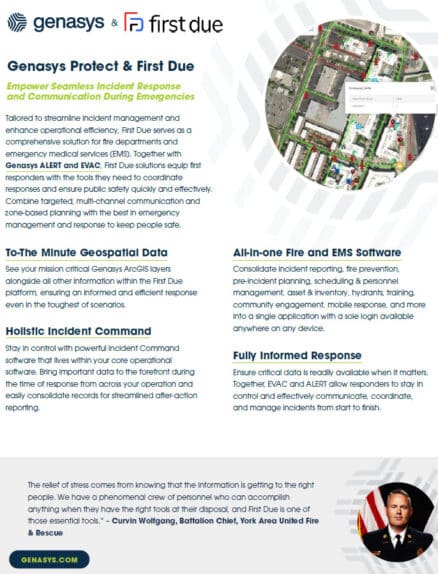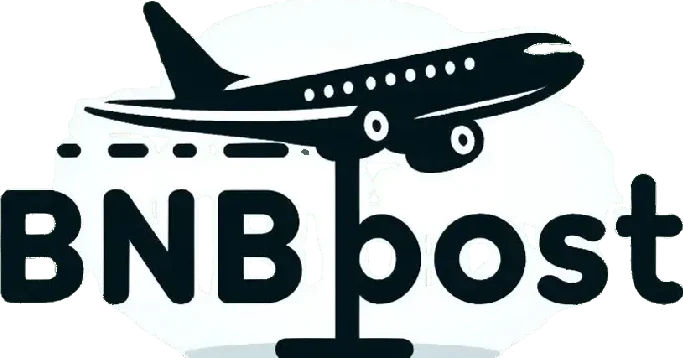Effective communication before, during, and after stays is crucial for a seamless guest experience. Guests rely on clear and timely information to make informed decisions and feel supported throughout their stay.
Streamlining communication processes ensures that guests receive the necessary details, assistance, and follow-up, leading to greater satisfaction and loyalty. By leveraging various communication channels and technologies, hosts can create a cohesive and responsive communication strategy that enhances the overall guest experience.
This article explores the significance of streamlined communication at each stage of a guest’s journey and offers practical tips for optimizing communication processes to meet guest needs effectively.
Contents
- 1 The Importance Of Effective Communication In Hospitality
- 2 Pre-arrival Engagement Strategies
- 3 Leveraging Technology For Seamless Check-ins
- 4 During The Stay: Enhancing The Guest Experience
- 5 Proactive Problem Solving
- 6 Gathering And Utilizing Guest Feedback
- 7 Post-stay Communication: Beyond The Checkout
- 8 Analyzing Communication Strategies For Continuous Improvement
- 9 Frequently Asked Questions
- 10 Conclusion
The Importance Of Effective Communication In Hospitality
Effective communication is the cornerstone of success in the hospitality industry. From the moment guests consider booking a stay to their departure, clear and streamlined communication plays a vital role in ensuring memorable experiences and building trust. By setting the stage for memorable stays, fostering transparency, and maintaining open lines of communication, hospitality businesses can create an environment where guests feel valued and understood.
Setting The Stage For Memorable Stays
In order to provide memorable stays, it is crucial to set the stage with effective communication. This begins even before guests arrive, with clear and concise information about the property, amenities, and services available. By providing this information upfront, guests can make informed decisions and have realistic expectations about their stay. During the booking process, prompt and personalized responses to inquiries or special requests can further enhance the guest experience and make them feel valued.
Once guests have arrived, ongoing communication is essential to ensure their needs are met. Whether it’s through personalized greetings, helpful recommendations, or proactive problem-solving, being attentive to guest communication can make all the difference. By anticipating and addressing potential issues before they arise, hospitality businesses can demonstrate their commitment to guest satisfaction and create a positive impression that lasts.
Building Trust Through Transparency
Transparency is key to building trust in the hospitality industry. Guests appreciate honesty and openness, especially when it comes to important details such as pricing, policies, and any potential changes or disruptions that may affect their stay. By clearly communicating these aspects, hospitality businesses can establish credibility and foster trust with their guests.
Effective communication also involves actively listening to guest feedback and concerns. Providing a platform for guests to express their opinions and addressing their feedback in a timely manner demonstrates a commitment to continuous improvement. By taking guest feedback seriously and making necessary adjustments, hospitality businesses can show that they value their guests’ input and are dedicated to delivering exceptional experiences.
In addition to guest communication, effective internal communication is equally important in the hospitality industry. A well-coordinated team that communicates efficiently can ensure smooth operations and provide consistent service to guests. By fostering a culture of open communication and collaboration, hospitality businesses can create an environment where staff members feel empowered to deliver exceptional service and exceed guest expectations.
In conclusion, effective communication is a fundamental aspect of the hospitality industry. By setting the stage for memorable stays, building trust through transparency, and maintaining open lines of communication, hospitality businesses can create exceptional experiences that leave a lasting impression on their guests. Through clear and streamlined communication, the industry can continue to thrive and evolve, delivering unparalleled service and satisfaction.

Credit: www.facebook.com
Pre-arrival Engagement Strategies
Pre-arrival engagement strategies play a crucial role in ensuring a seamless and memorable guest experience. By implementing personalized booking confirmations, pre-stay checklists, and tips, accommodations can effectively streamline communication before, during, and after stays. These strategies not only enhance guest satisfaction but also contribute to a more efficient and organized operation.
Personalized Booking Confirmations
Upon receiving a reservation, personalized booking confirmations can be tailored to include essential details such as booking dates, room preferences, and any special requests made by the guest. This personalized approach reassures guests and sets a positive tone for their upcoming stay.
Pre-stay Checklists And Tips
Equipping guests with pre-stay checklists and tips can help them prepare for their visit, whether it’s packing essentials, familiarizing themselves with on-site amenities, or exploring nearby attractions. This proactive approach enhances guest readiness and contributes to a smoother overall experience.
Leveraging Technology For Seamless Check-ins
Enhance guest experiences by utilizing technology for efficient check-ins, ensuring smooth communication pre, during, and post-stays. Streamlined processes enable seamless interactions and personalized services, elevating overall guest satisfaction levels. Leveraging technology optimizes operations and fosters guest loyalty through enhanced communication channels.
The days of long check-in queues and paper-based forms are long gone. With the advent of technology, hotels are leveraging it to streamline the check-in process. Technology has made it possible for hotels to offer guests a seamless check-in experience. The use of mobile apps, digital keys, and self-service kiosks has made the check-in process quicker, easier, and more convenient for guests.Mobile Apps And Digital Keys
Mobile apps and digital keys have revolutionized the way guests check-in at hotels. With the help of mobile apps, guests can complete the check-in process before they arrive at the hotel. They can also choose their preferred room, make special requests, and access their digital key through the app. Digital keys eliminate the need for guests to wait in line at the front desk to collect their physical key. They can simply use their smartphone to unlock their room. This technology not only saves time but also enhances security as the digital key cannot be duplicated.Self-service Kiosks
Self-service kiosks offer guests another alternative to traditional check-in methods. Guests can easily check themselves in by simply scanning their ID, credit card, or reservation number. The kiosk prints out a room key and provides directions to the room. Self-service kiosks are ideal for guests who prefer to avoid human interaction or who arrive at the hotel outside of regular check-in hours. They also free up front desk staff to focus on other tasks.In conclusion, leveraging technology for seamless check-ins has become a necessity for hotels in the modern era. Mobile apps, digital keys, and self-service kiosks offer guests a convenient and hassle-free check-in experience. By adopting these technologies, hotels can improve guest satisfaction, increase efficiency, and reduce costs.During The Stay: Enhancing The Guest Experience
Enhance the guest experience by streamlining communication before, during, and after stays. Improve the overall satisfaction by ensuring clear and efficient communication channels, eliminating common issues and providing personalized assistance throughout the entire guest journey.
During the Stay: Enhancing the Guest ExperienceReal-Time Communication ChannelsReal-time communication channels allow guests to reach out to the hotel staff instantly, making their stay more comfortable and convenient. Hotels can use various communication channels like SMS, WhatsApp, or in-app messaging to stay connected with guests. These channels enable guests to make requests, ask questions, or report issues in real-time. Additionally, hotels can use chatbots to automate some of these interactions, making it easier to manage guest requests and complaints.Personalized RecommendationsPersonalized recommendations can make a big difference in enhancing the guest experience. Hotels can use data analytics to understand guest preferences and offer relevant suggestions. For instance, if a guest frequently orders room service, the hotel can suggest their popular dishes. Similarly, if a guest has a history of booking spa treatments, the hotel can offer discounts or promotions. These personalized recommendations can improve the overall guest experience and make them feel valued.Table: Examples of Personalized Recommendations| Guest Preference | Personalized Recommendation | |——————|—————————–| | Fitness Enthusiast | Offer gym membership discounts | | Foodie | Recommend popular local restaurants | | Business Traveler | Offer early check-in and late check-out | | Family Traveler | Suggest nearby family-friendly attractions |In conclusion, during the stay, hotels can enhance guest experience by using real-time communication channels and personalized recommendations. These strategies can help hotels build better relationships with guests, improve their satisfaction levels, and ultimately drive repeat business.Proactive Problem Solving
Proactive problem solving is key to streamlined communication before, during, and after stays. By anticipating potential issues and addressing them early on, guests have a more seamless experience. Effective communication between hosts and guests is vital for a successful stay.
In the world of hospitality, proactive problem solving is essential for ensuring a seamless and enjoyable experience for guests. By anticipating their needs and implementing immediate response systems, hosts can address any issues that may arise before, during, and after their stays. This proactive approach not only enhances guest satisfaction but also helps to build a strong reputation and foster repeat business.Anticipating Guest Needs
To effectively address any potential problems, hosts must first anticipate the needs and preferences of their guests. By gathering relevant information during the booking process, such as dietary restrictions or special requests, hosts can tailor their services accordingly. For example, if a guest mentions being allergic to certain ingredients, the host can ensure that their stay includes allergen-free meals or provide recommendations for nearby restaurants that cater to their needs.Immediate Response Systems
Having immediate response systems in place is crucial for resolving any issues that may arise during a guest’s stay. This can include providing a dedicated phone line or email address for guests to reach out with their concerns or inquiries. By promptly responding to these messages, hosts can address any problems or questions and provide necessary assistance in a timely manner. This level of responsiveness not only shows guests that their needs are valued but also helps to prevent minor issues from escalating into larger problems.Implementing a comprehensive guest communication platform can further streamline the process of addressing guest needs. This platform can include features such as automated messages for check-in instructions, reminders for upcoming reservations, and an easy-to-use interface for guests to communicate their requests or report any issues. By utilizing such a system, hosts can ensure that communication is efficient, organized, and seamless throughout the entire guest experience.In conclusion, proactive problem solving is a vital aspect of providing exceptional hospitality services. By anticipating guest needs and implementing immediate response systems, hosts can address any issues that arise in a timely and efficient manner. This level of proactive communication not only enhances guest satisfaction but also helps to build a strong reputation and foster repeat business.
Credit: genasys.com
Gathering And Utilizing Guest Feedback
Effective communication before, during, and after a guest’s stay is crucial for gathering and utilizing feedback. Streamlining communication channels and providing easy-to-use feedback systems can enhance the guest experience and improve the overall quality of service.
In-stay Surveys
During a guest’s stay, gather real-time feedback through brief surveys.Utilize digital platforms for quick and convenient survey distribution.Ask specific questions to pinpoint areas of improvement or satisfaction.Post-Departure ReviewsPost-departure Reviews
Encourage guests to leave reviews after their stay for comprehensive feedback.Leverage online review platforms to showcase positive feedback and address concerns.Respond promptly to reviews to show attentiveness to guest feedback.Post-stay Communication: Beyond The Checkout
Effective post-stay communication is crucial for enhancing guest satisfaction and building brand loyalty.
Thank You Messages
Send personalized thank you messages to guests after their stay to show appreciation and encourage feedback.
Custom Offers And Updates
Keep guests engaged by offering customized deals and providing updates on upcoming promotions and events.
Analyzing Communication Strategies For Continuous Improvement
To achieve continuous improvement, businesses must analyze and streamline their communication strategies before, during, and after stays. By evaluating the effectiveness of these strategies, companies can identify areas for enhancement, ensuring seamless and efficient communication processes.
Measuring Guest Satisfaction
Use surveys to collect feedback and ratings.
Monitor online reviews for insights and trends.
Adapting To Guest Preferences
Offer customization options based on preferences.
Personalize communication for a tailored experience.

Credit: www.comcenter.com
Frequently Asked Questions
What Does It Mean To Streamline Communication?
Streamlining communication means optimizing and improving the flow of information within an organization. It involves eliminating unnecessary steps or barriers, using efficient tools and channels, and ensuring clear and concise messaging. This enhances collaboration, productivity, and decision-making processes.
How To Streamline Communication In The Workplace?
To streamline communication in the workplace, use clear, concise language. Encourage open dialogue, utilize digital platforms, and establish regular check-ins. Implement feedback mechanisms and provide communication training.
What Is The Purpose Of Media Streamlining In Communication?
Media streamlining in communication aims to optimize the transmission of information through various channels. By simplifying and organizing content, it enhances the delivery process, making it more efficient and effective. This helps ensure that messages are clear, concise, and easily accessible to the target audience, resulting in improved communication outcomes.
How Can You Streamline Communication Within An Administrative Team To Ensure Everyone Is Well Informed And On The Same Page?
Ensure clear and regular communication to keep the administrative team informed and aligned. Utilize team meetings, messaging apps, and project management tools. Establish clear reporting structures and encourage open dialogue. Regularly review and update processes to improve communication efficiency.
Conclusion
Effective communication is key before, during, and after stays. By streamlining communication channels, both hosts and guests can enhance their experience. Clear and concise messages promote understanding, minimize misunderstandings, and build trust. Utilizing technology and platforms that facilitate seamless communication can lead to smoother transactions and improved customer satisfaction.
So, prioritize effective communication to ensure a positive and hassle-free experience for all parties involved.


